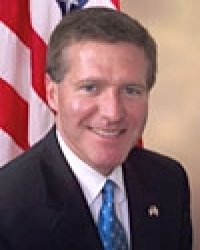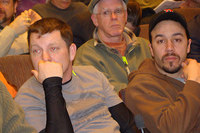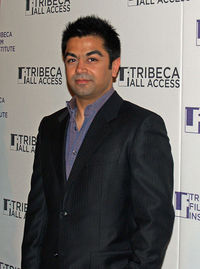 Fox started the trend of ignoring the FCC when it does something they don’t like.
Now the duopoly has gotten up to the same trick:
Fox started the trend of ignoring the FCC when it does something they don’t like.
Now the duopoly has gotten up to the same trick:
Comcast, AT&T, Time Warner Cable, and cable research company CableLabs were all invited to participate several weeks ago, but declined, Martin said. The commission again reached out to Comcast after the announcement this week that it would develop a P2P bill of rights with Pando Networks, but they again sent their regrets, he said.You may recall at the previous hearing, at Harvard, FCC chair Kevin Martin couldn’t hear the difference between participant and consumer, while Comcast hired shills off the street to take up seats so people with things to say couldn’t. Now the duopoly is painting the FCC as unduly critical of themselves, and the press is going along with that, including the hometown Silicon Valley newspaper, the San Jose Mercury News, which should know better: Continue reading— ISPs Give FCC Cold Shoulder at Internet Hearing, by Chloe Albanesius, PCMag.com, 04.17.08







